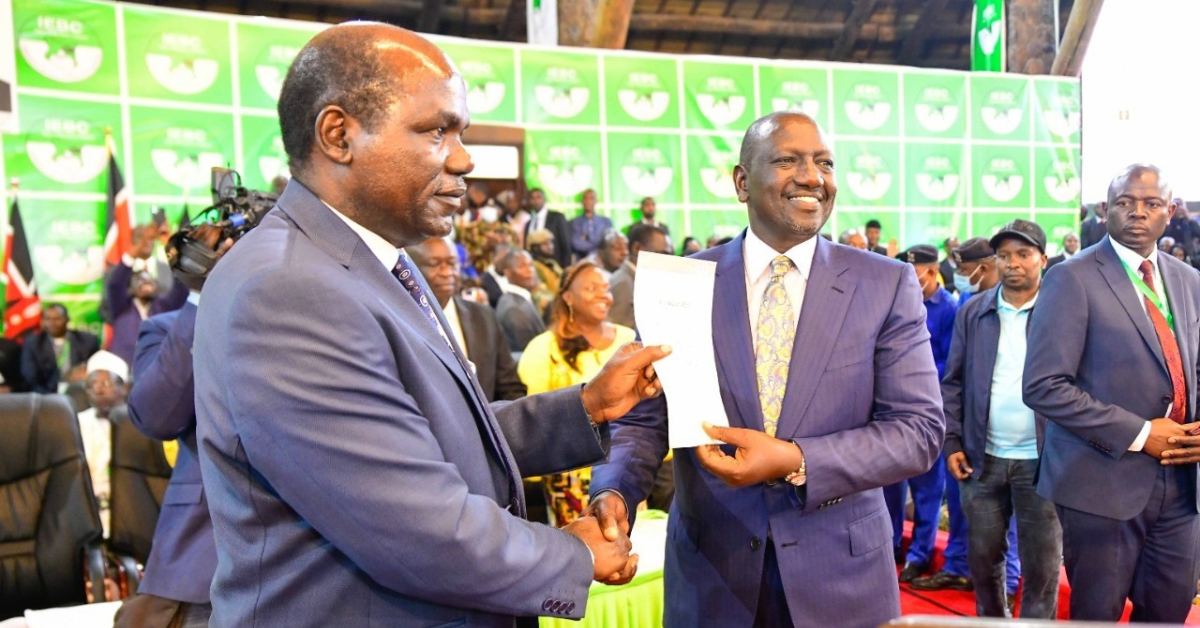It is March 2018. Somewhere in a parallel universe, in a country also called Kenya, an historic election was held exactly five years ago. It was a time of great anxiety – and great promise.
New leaders were being elected into office under a new constitution; a constitution whose promise in terms of civil liberties, balance of power and devolution of resources and decision-making made it among the most progressive.
The run-up to the election was marked by great anxiety, heightened by many frightful questions in the public mind. What if the Jubilee coalition duo, Uhuru Kenya and William Ruto, having won the election, refuse to cooperate with the International Criminal Court?
What if they cooperate and are found guilty while serving as president and deputy president? Will a Jubilee government fully implement the constitution?
Will it abrogate its key tenets and gradually water it down as past leaders did the independence constitution? Or, will it apply it selectively, choosing to ignore it when it deems convenient, as the last government attempted to do?
Will the poison of negative ethnicity and corruption continue to eat into the flesh and bone of the State? Will the erosion of the nation’s morality accelerate under a culture of perverse impunity and greed?
Will the Jubilee coalition, having ascended to power, remain tightly knit or will the threads binding Uhuru and Ruto quickly frazzle, leading to an emergence of a destabilising opposition from within the coalition itself?
And, will such an opposition lead to a dangerous falling-out between the two former comrades-in-arms resulting in renewed violence in the Rift Valley?
How will a vanquished Coalition for Reforms and Democracy behave in the opposition? Will it cohere and act as an effective check on the government, or will it splinter under the unrelenting pressure of corruption?
Will Cord, supported by sections of the civil society, light a fire under the feet of UhuRuto, making the country difficult to govern? Will widespread fear and insecurity spawn a jungle mentality in which the few financially strong trample on the poor, while the poor use every opportunity to snatch what it can from the rich?
And, will the country then, gasping for air in a suffocating environment of class and ethnic tensions, explode in violence? There were too many questions. But that was March 2013.
Today five years later, events have unfolded following a path that is at once brilliant and hopeful. Uhuru Kenyatta and William Ruto did go on to win the election.
Buoyed by that victory, they decided to cooperate with ICC. The ICC, finding itself in a head-scratching situation (how to conduct a trial in a manner that somehow allows UhuRuto to still run the country), agrees to adjust the court calendar to accommodate the unusual circumstances.
The trial itself took shorter than was expected, ending in the acquittal of the two for lack of sufficient evidence. Meanwhile, the much feared “sanctions” never materialised and investor confidence was not only unaffected, but actually strengthened as it became clear that the new government was determined to continue implementing needed reforms.
To the pleasant surprise of many, and showing great fidelity to the constitution, the Jubilee government actually moved with speed and determination to tackle three of Kenya’s biggest challenges: corruption, unemployment and tribalism.
With improved governance and better economic management, incomes rose leading to a virtuous cycle of better security, more investment, economic growth and more jobs.
Optimism fed on itself. Fear retreated. Kenya surged forward, propelled by a new math born out of the ashes of post-election fires: one negative plus one positive equals two positives!
In the new mathematical logic, a negative (post-election violence) plus a positive (the ICC trials) equalled two positives ((the fruits of a new constitution, and amity between warring communities).
Now, before we get carried away, we must remember this is all happening in a parallel universe in a country also called Kenya – whose longitudes and latitudes are the same as those of our country.
Back in our universe, the urgent question on March 5 if (some say when) the Jubilee team wins, is: will this be another false dawn for Kenya?
Or, worse, is the sun about to set on Kenya’s hopes? Is UhuRuto capable of scripting an alternate positive history for this country? Will their leadership be mission-driven and vision-executing? In short, will it be positively transformative?
If (some say when) the Cord team wins, the country has the same questions: will there be a quantum change in the governance and economic management of the country?
Or, will we instead see a mad rush to amass personal fortunes as the new ‘eating chiefs’ try to play catch up with the Kibaki and Moi era looters? Questions, questions and more questions; meanwhile, Kenya awaits the answers

